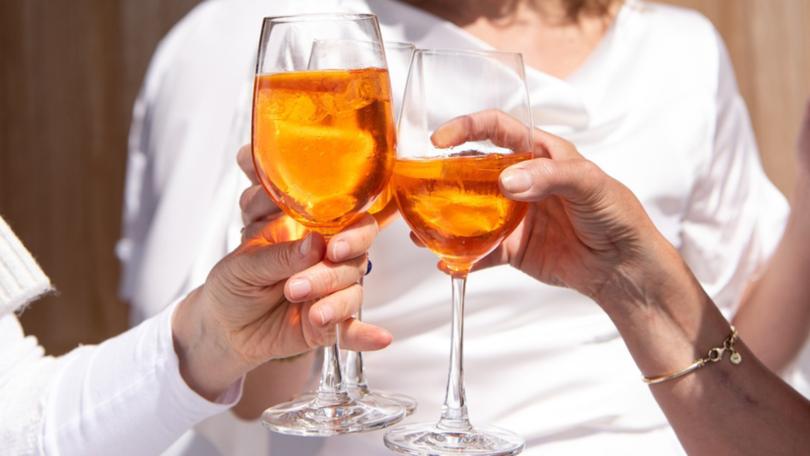Dr Max Pemberton: How many alcoholic drinks is considered a binge?
What image springs to mind when I say the words ‘binge drinker’? Young people knocking back shots and staggering out of bars barely able to stand, perhaps?

What image springs to mind when I say the words ‘binge drinker’? Young people knocking back shots and staggering out of bars barely able to stand, perhaps?
What if I told you that three standard glasses of wine consumed in one sitting is considered a binge?
You may be shocked by that information but six or more units of alcohol for women (eight for men) is all it takes, meaning that many people who would be aghast at the very suggestion they are a binge drinker, may well be.
Sign up to The Nightly's newsletters.
Get the first look at the digital newspaper, curated daily stories and breaking headlines delivered to your inbox.
By continuing you agree to our Terms and Privacy Policy.Therefore, with Christmas party season now upon us, you’re going to have to forgive me for donning my party pooper hat for a few minutes.
While I want everyone to enjoy themselves, my concern lies with the fact that I know large numbers of people are going to end up consuming far more alcohol than is safe and are likely to be completely ignorant of the damage they are doing.
Some may already be reading this and thinking, “Where’s the harm? It’s once a year!”
Perhaps you’ve decided you’ll make amends by doing dry January?
Well I’m sorry to say that a month of excessive boozing can’t be magically cancelled out by a month of sobriety.
Last week’s Panorama shone a light on the devastating health impact of alcohol in women.
It was presented by BBC journalist Hazel Martin who, in her early 30s, was diagnosed with alcohol-related liver fibrosis because of her drinking habits.
This is a form of severe scarring of the liver and if she had continued drinking, it would have developed into cirrhosis.
Yet Hazel wasn’t dependent on alcohol and didn’t drink every day.
In other words, a binge on a night out followed by six non-drinking days is actually worse than if you drank the same amount over the course of the entire week.
When she drank it was to be sociable and because she liked it.
But her pattern of alcohol consumption, like so many others, definitely classed her as a binge drinker.
Her compelling investigation showed that while the problem is undoubtedly bigger in men, more women under the age of 45 are dying due to alcohol-related liver disease (ARLD) than ever before, according to Office for National Statistics (ONS) figures from 2001-22.
From my experience working in a liver unit, and later alcohol services, many patients with liver problems had convinced themselves that their drinking was fine because they had days off and therefore gave their body a “rest”.
It’s an attitude that is sadly misguided.
There is now mounting evidence that bingeing alcohol is uniquely damaging to the body compared to drinking the same amount spread out over time.
In other words, a binge on a night out followed by six non-drinking days is actually worse than if you drank the same amount over the course of the entire week.
Bingeing is up to four times as damaging to the liver.
According to the latest ONS data, liver disease is consistently in the top three causes of death each year for women aged 39-45.
The toll of alcohol bingeing doesn’t stop with liver damage either.
There’s also evidence that even one session can compromise functioning of the immune system and lead to acute pancreatitis as well as increasing the risk of traumatic injuries and suicidal behaviour.
For many years I worked in A&E and saw countless women who had been out, got blind drunk and then suddenly felt suicidal or developed heart arrythmias (irregular heart beat that can be brought on by alcohol).
When binge drinking becomes chronic it increases the likelihood of developing cancer and coronary heart disease.
And while the problem of bingeing is growing in younger women, the highest rates are still in adults between 55 and 64, according to research conducted by DrinkAware.
Their data suggests that around one in five people in this age range binge drink.
Yet this age range is also one of the most vulnerable to the toxic effects of alcohol.
An interesting study was published recently that showed how increased alcohol consumption raises the risk of dementia.
It’s now becoming clear that even moderate drinking can cause brain damage.
Figures show that two people are hospitalised every day because of alcohol-related dementia.
As doctors, we have a duty to tell our patients more about the chronic, disabling conditions linked to excessive alcohol consumption.
We tend to over-emphasise how drinking (and smoking) will shorten their lives and all too often we’ll get the jocular response: “Well, doc, you’ve got to die of something!”
However, while bingeing on alcohol might not kill you outright, some of the consequences are, arguably, far worse than death; stroke, disability, dementia, cancer – conditions that you may have to live with for years.
It’s not so easy to dismiss Christmas binge drinking as “letting your hair down” once you’re aware of the cold, hard facts.
So, have fun by all means but avoid bingeing – believe me your body will thank you.
